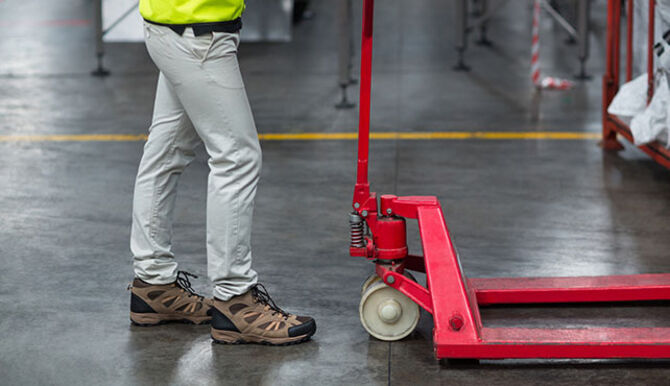Businesses uneasy overseas ban on low skills
The UK government's decision not to offer visas to lower skilled workers in its proposals published on Wednesday for a post-Brexit immigration system, has caused deep concern among business leaders.

 19 February 2020
19 February 2020Employers reliant on low-wage workers are worried
But Madeleine Sumption, director of Oxford University’s Migration Observatory, has suggested that the transition to the new system could be difficult for UK employers who have become reliant on low-wage workers.“Some employers will be able to adjust [to the system] maybe by introducing more labour-saving techniques, such as machinery. In some cases that won’t be feasible and for them the questions are: can they find other sources of workers, will they produce less, or will they go out of business?” she asked.UK care, construction, hospitality, and food and drink industries face shortages
The Confederation of British Industry (CBI) has warned that social care, construction, hospitality, and food and drink industries could be most affected by the changes. Carolyn Fairbairn, CBI director-general, said, “Several aspects of the new system will be welcomed by business, particularly abolishing the cap on skilled visas, introducing a new post-study work visa for overseas students, and reducing the minimum salary threshold from £30,000.“Nonetheless, in some sectors firms will be left wondering how they will recruit the people needed to run their businesses. With already low unemployment, firms in care, construction, hospitality, food and drink could be most affected.“Firms know that hiring from overseas and investing in the skills of their workforce and new technologies is not an ‘either or’ choice - both are needed to drive the economy forward."The government says it recognises the proposals represent a "significant change" for employers in the UK and has promised "a comprehensive programme of communication and engagement in the coming months", adding, "We will keep labour market data under careful scrutiny to monitor any pressures in key sectors."UK labour shortages mean employers need access to overseas workers at all skill levels
But Adam Marshall, director-general of the British Chambers of Commerce, commented, “The speed and scale of these changes would require significant adjustment by businesses from Cornwall to Inverness. “Companies are already investing heavily in home-grown talent across the UK, but critical labour shortages mean firms will still need access to overseas workers at all skill levels. The new points system must be able to respond quickly to changing market needs, and the application process must be radically simplified.”Kate Nicholls, CEO of the trade association UKHospitality, said the industry was already facing an acute staff shortage and that businesses would need longer than the next ten months to adapt to the new rules."We fully support the ambition to upskill the domestic population and provide opportunities for people in every part of the UK (but) these proposals fail to deliver on the government’s own objective of providing an immigration system which works for the UK’s economy and its people," she said.Related news:
- MAC Report: UK should keep migrant salary threshold, says advisory report
- Businesses uneasy about overseas ban on low skills
- A Post-Brexit Checklist for Expats
UK Homecare Association "dismayed" by government plans
The UK Homecare Association said it was "dismayed" by the government's plans, adding, "Cutting off the supply of prospective care workers under a new migration system will pave the way for more people waiting unnecessarily in hospital or going without care. Telling employers to adjust, in a grossly under-funded care system, is simply irresponsible."UK farmers have "serious concerns"
Minette Batters, president of the National Farmers' Union, expressed "serious concerns" about the government's "failure to recognise British food and farming's needs"."As the UK's largest manufacturing sector, British food and farming is at the very core of our economy and any immigration policy must deliver for its needs," she said."We have said repeatedly that for farm businesses it is about having the full range of skills needed - from pickers and packers to meat processors and vets - if we are to continue to deliver high quality, affordable food for the public."Failure to provide an entry route for these jobs will severely impact the farming sector. There are also some jobs that simply cannot be replaced by technology." Sally Gilson, head of skills at the Freight Transport Association, added, “I don’t understand why they are setting an arbitrary level for skills and salary when it should surely be based on what the country needs. These are jobs that Britain relies on to keep goods and trade moving.“Logistics hubs are in areas of low unemployment, so it’s not a case of being able to train up local people to take those roles.”
Read more news and views from David Sapsted.
Subscribe to Relocate Extra, our monthly newsletter, to get all the latest international assignments and global mobility news.Relocate’s new Global Mobility Toolkit provides free information, practical advice and support for HR, global mobility managers and global teams operating overseas. Access hundreds of global services and suppliers in our Online Directory
Access hundreds of global services and suppliers in our Online Directory s
s©2026 Re:locate magazine, published by Profile Locations, Spray Hill, Hastings Road, Lamberhurst, Kent TN3 8JB. All rights reserved. This publication (or any part thereof) may not be reproduced in any form without the prior written permission of Profile Locations. Profile Locations accepts no liability for the accuracy of the contents or any opinions expressed herein.






























